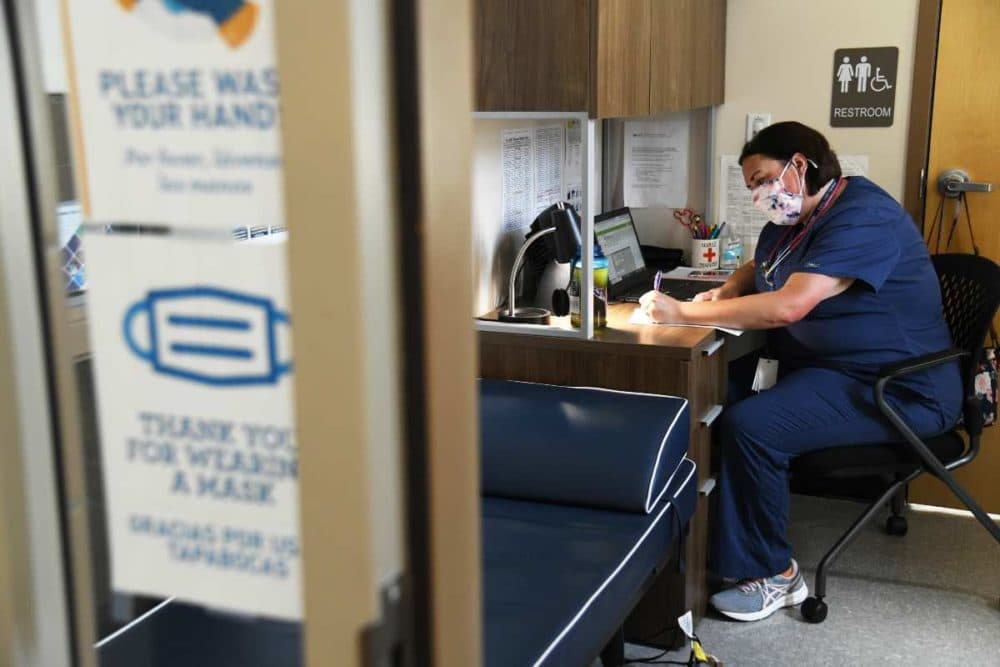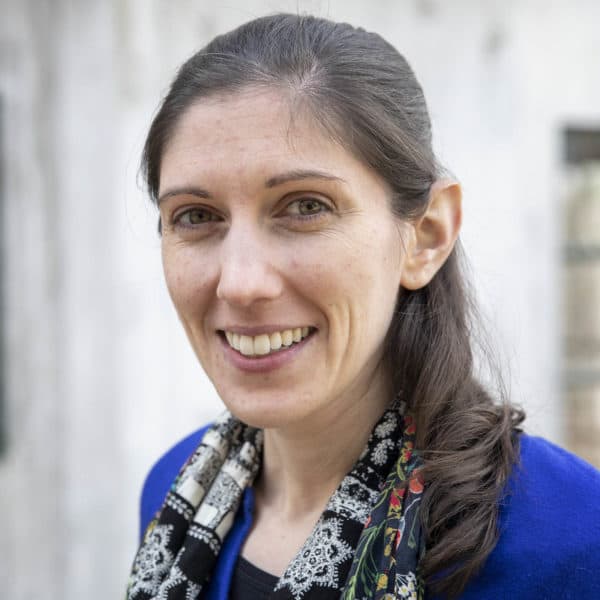Advertisement
'There's nobody': Nurse shortage is hitting K-12 schools in Massachusetts

There are nearly 300 job postings for school nurse positions in Massachusetts. According to the Massachusetts School Nurse Organization, that accounts for more than 10% of all school nurses in the state.
“There's nobody to fill the positions,” said Cathryn Hampson, the organization's president. “I've been a school nurse for 26 years now, and this is the worst I've ever seen as far as open positions goes.”
WBUR spoke with Hampson to learn more about the shortage, how it's affecting schools and students, and what can be done about it. (This interview has been edited for length and clarity.)
You say there are a lot of open positions. What’s the impact of the shortage?
"In some districts, it means schools are working understaffed.
"So maybe it's a school that normally should have two full-time school nurses in it, and they're working with just one. And so that nurse is probably working a lot of extra hours. Typically, they don't get paid for that. They just stay to get the work done.
"There might be districts where they're sharing a nurse between two schools, and she might spend the morning in one school and the afternoon in another.
"It definitely is not recommended, and not what you want for staffing. And it does put our students' safety at risk."
When you say student safety is at risk, what does that look like on the ground?
"One of the ways that we keep students with complex medical conditions safe in school is through the development of health care plans. When you are covering two schools, or you're only one nurse covering a school that should have two nurses in it, the time you have to put into that plan is minimal.
"When we're adequately and appropriately staffed, these plans enhance not only student safety but student academic achievement in school. And when we are understaffed, there's not the time to do that work.
"In addition, when you have a situation where you have a very busy health office that's understaffed, you have students coming in for medications, you have students come in through the door because they've gotten hurt, you are dealing with behavioral issues — the potential for medication errors escalates. That means either not doing a treatment correctly or not giving the medication to the right child. Your student safety is very compromised in those situations."
The scenario you are painting is a scary one.
"Yes, it is. And it should be."
So, why is there this shortage?
"This is largely due to attrition in one form or another, whether it's school nurses retiring because it was their time to retire or it’s early retirement. Some just decided, with COVID, that they didn't really want to do this anymore. And so they left school nursing."
And are you having trouble recruiting people into the field?
"Yes, we are. And we knew this was coming. So back in 2011, [the Institute of Medicine] published The Future of Nursing report, and one of the things they said was coming in the 2020s, was that we would have a nursing shortage. Then this was somewhat accelerated by COVID.
"Part of the issue is that we don't have people going into nursing the way we did 30 years ago — or earlier than that, if you're my age.
"When I went into nursing, women were pretty much going into nursing or teaching. And these days they have so many other options that they're not seeing nursing as an interesting career choice or something they want to do, which is unfortunate."
How does school nursing compare to the rest of nursing? I know there are additional licensing requirements, but beyond that, is it harder to recruit people to school nursing?
"Yes, it is. Traditionally, school nurses were thought to be something you did when your kids were in school so that you could be home with them. It wasn't seen as a subspecialty of nursing that required a lot of knowledge and skill. It was somebody's mother.
"As it has evolved over the years, it's now a high specialty in nursing.
"We care for kids as young as 3 years old, all the way up to adults. That’s because we have staff in our buildings, we have children in our buildings, and we're responsible for providing care for all of them.
"And so the knowledge base that you need to have is quite expansive and broad. So it really is different than I think the historical image people have."
What are you doing to fix this misunderstanding?
"So we are collaborating with schools of nursing to begin talking and meeting with nursing students, and we talk about how important school nursing is and how valuable it is.
"It's only with school nurses that students are able to remain in school with life-threatening allergies, asthma, cancer and a variety of cardiac conditions.
"Kids that we couldn't save 30 years ago, that were born with significant defects, we're now saving and they're in school. And we need to be able to support these children so that they can safely participate in all of their classes, in all the activities in school, and so that they can grow and learn."
Do you think the shortage will improve in the foreseeable future?
"I think it's on everybody's radar, and I think that that helps.
"We're being very vocal and letting everybody know. DESE [the Massachusetts Department of Elementary and Secondary Education] is aware. DPH [the state Department of Public Health] is aware. We've talked with legislators. They're all aware of the workforce issue right now and the concerns in regards to it.
"So I am hopeful, although my husband would tell you I'm eternally hopeful."
